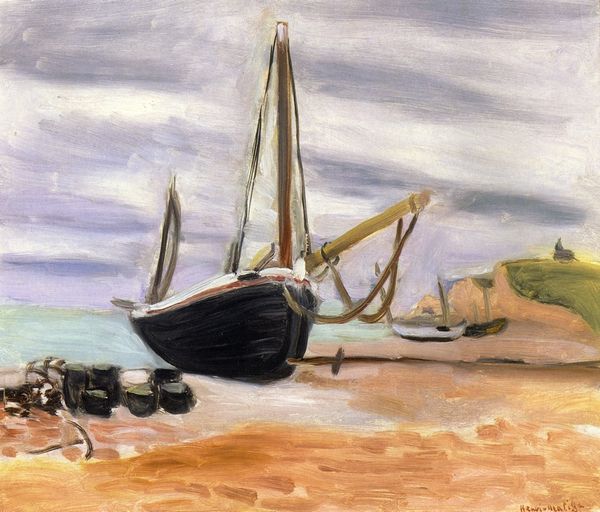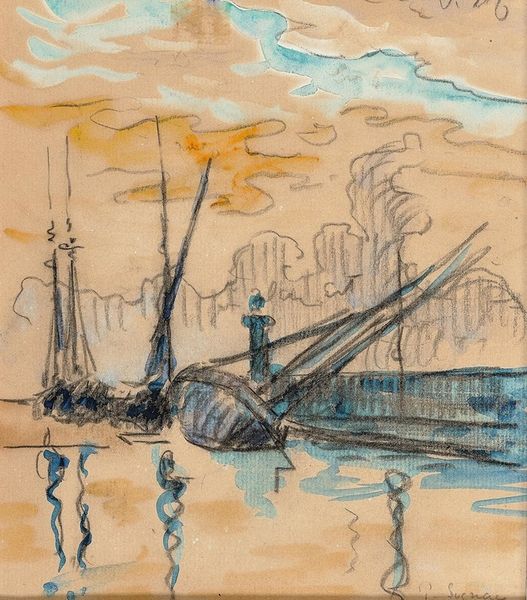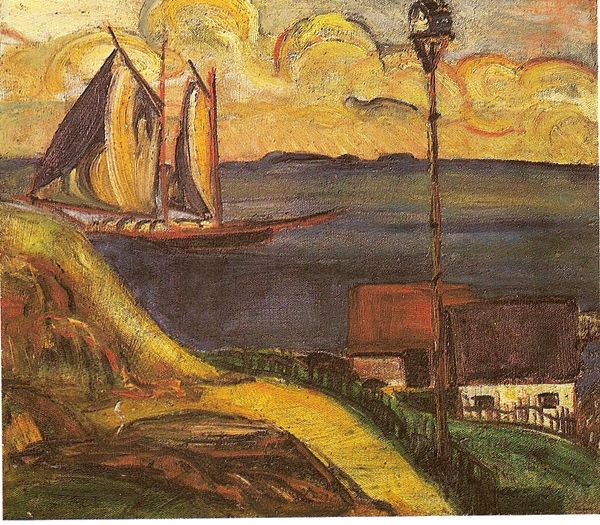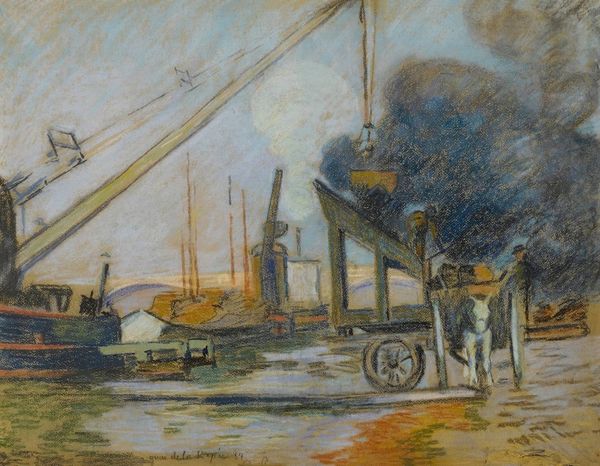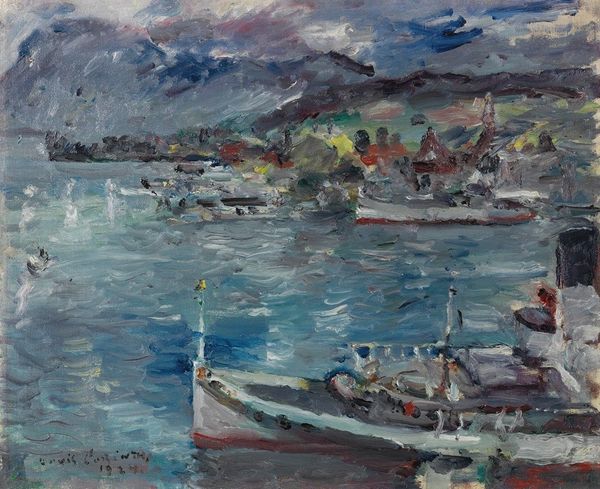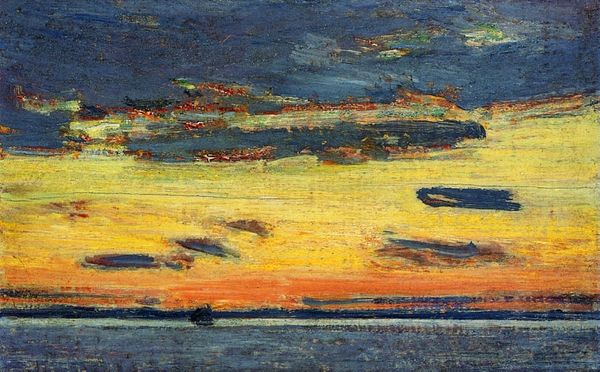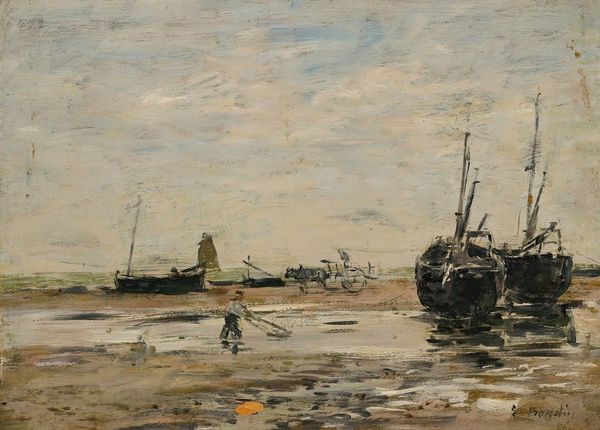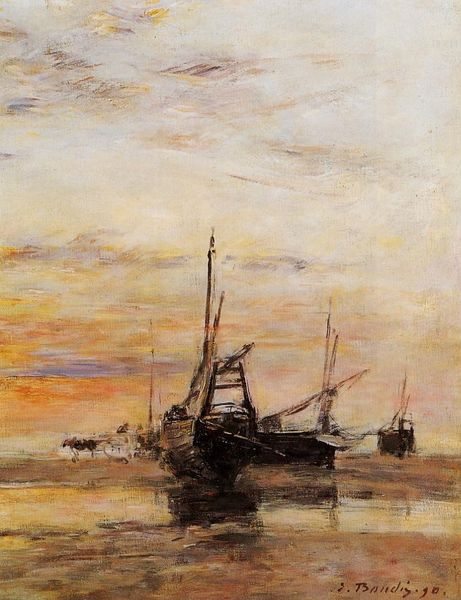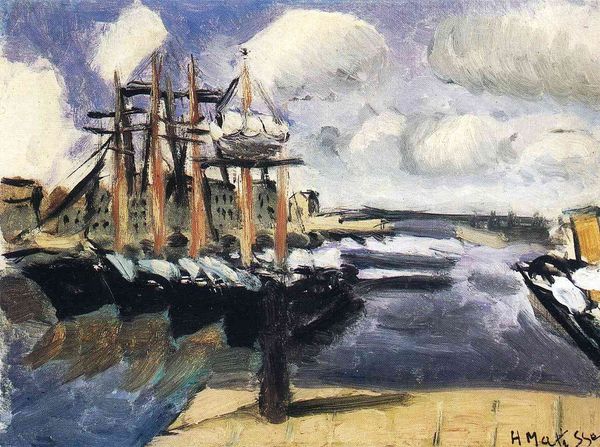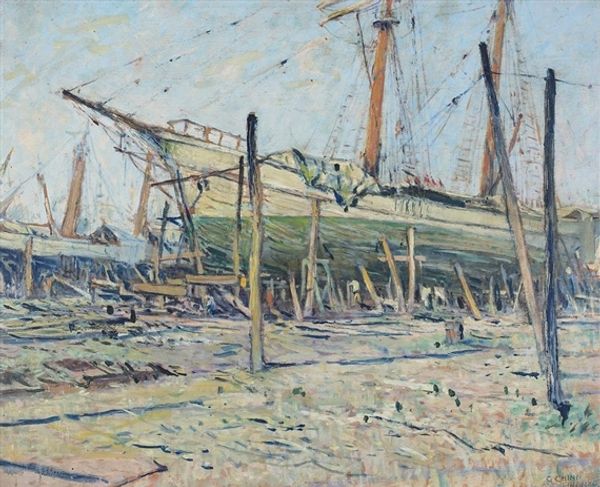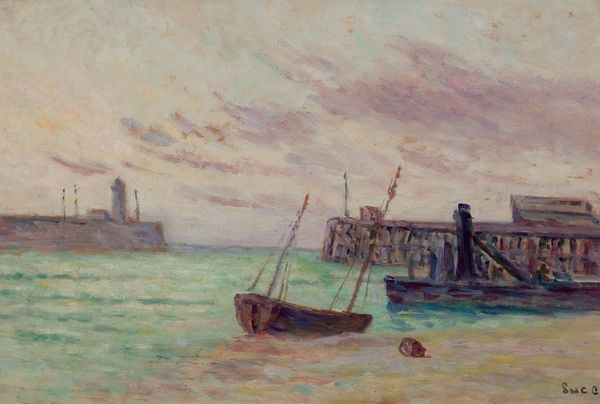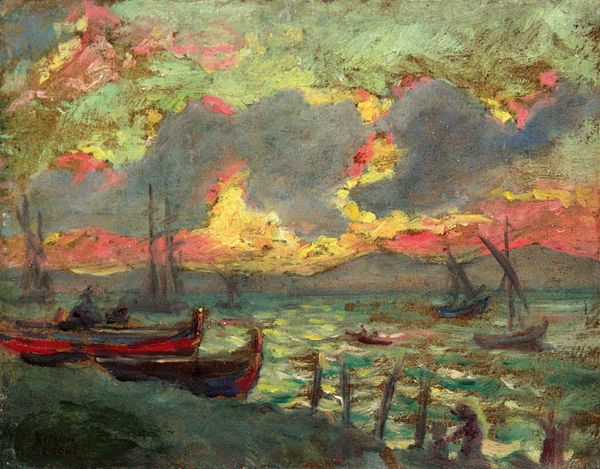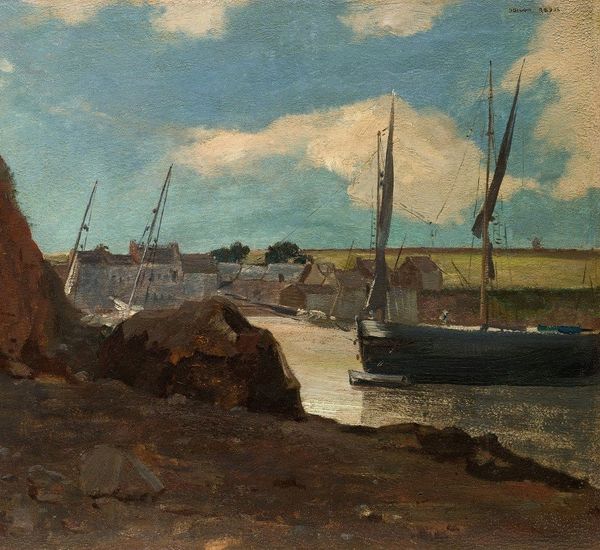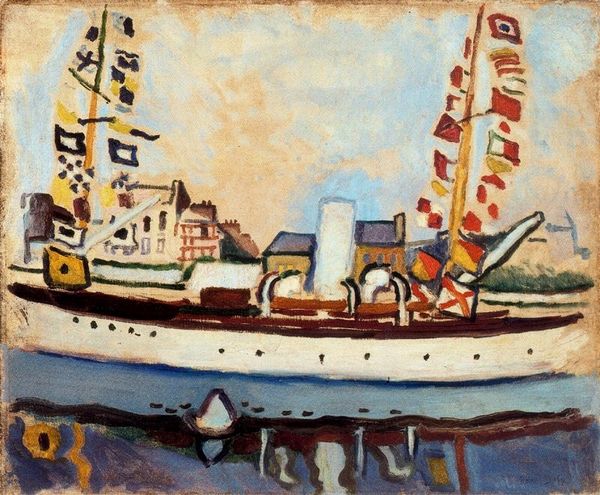
Copyright: Public domain
Curator: Standing before us is Albert Marquet's "Unloading Sand," created in 1902 using oil on canvas. The painting portrays an industrial river scene. What are your initial thoughts on this piece? Editor: It strikes me as a visual poem, almost a dream of industry. The muted tones give it this melancholy, contemplative air despite the busy subject. Curator: That's astute. While Marquet is often associated with the Fauves, this piece demonstrates his restraint in color and emphasis on capturing the atmosphere. Consider how the smoke plumes mirror the shape of the sand pile – industry and nature are intertwined. This suggests something deeper than just a simple depiction of work. Editor: Definitely. The repetition almost feels symbolic, a kind of visual echo. It’s not just about the physicality of unloading sand, is it? There is almost something biblical, primordial even, about extracting sand from the Earth; the image has an elemental feel that connects the viewer to the very beginnings of modern economies and large urban environments. Curator: Precisely. Marquet consistently revisited themes of ports, rivers, and cityscapes throughout his career. These subjects aren’t mere exercises in perspective; he uses them to investigate themes of transformation, change, and man's impact on nature, almost in relation to some deep cultural need that is now at the foundation of progress and life itself. Editor: Which can make it really feel very alive in a sense. The brushstrokes aren't particularly detailed, but they do capture a living movement – the lapping of water, the slow exhalation of smoke. Is the viewer meant to read these scenes as beautiful, haunting, both? I suspect Marquet did. Curator: Ambiguity is part of its power, I think. By grounding it within very basic images and palettes the viewer feels very at home, maybe recalling childhood games played on a river bank as they see the grander themes rise from the depths of their minds and imaginations. "Unloading Sand" stands as an understated contemplation of progress and consequence. Editor: In some ways, it serves as an honest reminder: What we call 'progress' carries echoes, long and lingering, across the land, cultures and our memories.
Comments
No comments
Be the first to comment and join the conversation on the ultimate creative platform.
